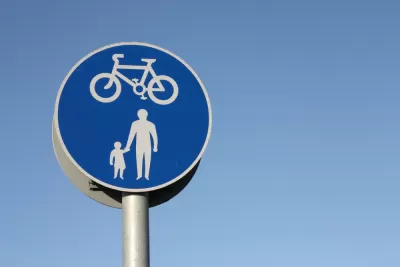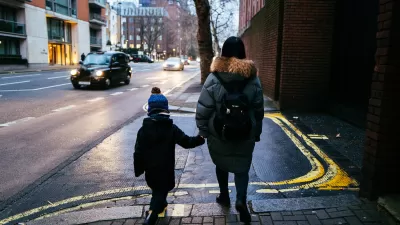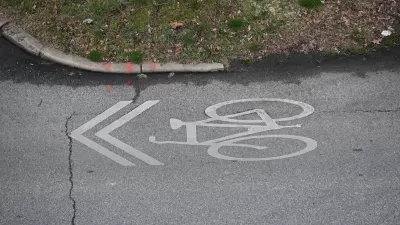Following a close call on his bike, a writer questions the perverted logic of safety campaign slogans that share, equally, the onus for traffic safety between cars and bikes.

The blogger for The Invisible Visible Man recalls how being passed within six inches by a cab driver in New York City made him question the efficacy of "share the road" campaigns.
"…it’s self-evidently bizarre to argue that the solution to drivers’ killing people is to ask everyone to be nice."
The post goes on to break down the merits of the "Leave it on the road" messaging that's part of the "Share the Road" campaign promoted by Trasnport for London.
"Leave it on the road," according to the post, "suggests that the real problem is people’s malice towards each other or negative perceptions. It ignores the evidence that negligence, inattention and poor risk assessment are significant causes of car crashes. It puts the focus on vulnerable road users’ reaction to negligent driving. It suggests that all cyclists and pedestrians are somehow collectively responsible for each others’ behaviour. Motorists are helpless vessels full of potential rage that cyclists or pedestrians can make explode or safely depressurise."
Other examples of such safety campaigns: "Respect is a Two-Way Street" and (as mentioned by a commenter) "The Nice-Way Code."
"The question," according to the post, "is why 'share the road' campaigns continue to consume energy that could be better directed elsewhere."
FULL STORY: A close pass, a misguided campaign - and why I won't just leave it on the road

Maui's Vacation Rental Debate Turns Ugly
Verbal attacks, misinformation campaigns and fistfights plague a high-stakes debate to convert thousands of vacation rentals into long-term housing.

Planetizen Federal Action Tracker
A weekly monitor of how Trump’s orders and actions are impacting planners and planning in America.

In Urban Planning, AI Prompting Could be the New Design Thinking
Creativity has long been key to great urban design. What if we see AI as our new creative partner?

King County Supportive Housing Program Offers Hope for Unhoused Residents
The county is taking a ‘Housing First’ approach that prioritizes getting people into housing, then offering wraparound supportive services.

Researchers Use AI to Get Clearer Picture of US Housing
Analysts are using artificial intelligence to supercharge their research by allowing them to comb through data faster. Though these AI tools can be error prone, they save time and housing researchers are optimistic about the future.

Making Shared Micromobility More Inclusive
Cities and shared mobility system operators can do more to include people with disabilities in planning and operations, per a new report.
Urban Design for Planners 1: Software Tools
This six-course series explores essential urban design concepts using open source software and equips planners with the tools they need to participate fully in the urban design process.
Planning for Universal Design
Learn the tools for implementing Universal Design in planning regulations.
planning NEXT
Appalachian Highlands Housing Partners
Mpact (founded as Rail~Volution)
City of Camden Redevelopment Agency
City of Astoria
City of Portland
City of Laramie





























